I have following code:
auto source= _mm256_set_epi8(31, 30, 29, 28, 27, 26, 25, 24, 23, 22, 21, 20, 19, 18, 17, 16, 15, 14, 13, 12, 11, 10, 9, 8, 7, 6, 5, 4, 3, 2, 1, 0);
auto shuffle= _mm256_set_epi8(31, 31, 31, 31, 31, 31, 31, 31, 31, 31, 31, 31, 31, 31, 31, 31, 16, 16, 16, 16, 16, 16, 16, 16, 16, 16, 16, 16, 16, 16, 16, 15);
auto resultOfShuffle = _mm256_shuffle_epi8(source, shuffle);
The result is
{31, 31, 31, 31, 31, 31, 31, 31, 31, 31, 31, 31, 31, 31, 31, 31, 0, 0, 0, 0, 0, 0, 0, 0, 0, 0, 0, 0, 0, 0, 0, 15}
How is this possible? What's so special with number 16?
My processor is 8750h. I'm using Visual Studio 16.5.2
This is dissassembly
auto source = _mm256_set_epi8(31, 30, 29, 28, 27, 26, 25, 24, 23, 22, 21, 20, 19, 18, 17, 16, 15, 14, 13, 12, 11, 10, 9, 8, 7, 6, 5, 4, 3, 2, 1, 0);
00007FF791AD1A64 vmovdqu ymm0,ymmword ptr [__ymm@1f1e1d1c1b1a191817161514131211100f0e0d0c0b0a09080706050403020100 (07FF791ADCBC0h)]
00007FF791AD1A6C vmovdqu ymmword ptr [rbp+1A0h],ymm0
00007FF791AD1A74 vmovdqu ymm0,ymmword ptr [rbp+1A0h]
00007FF791AD1A7C vmovdqu ymmword ptr [source],ymm0
auto shuffle = _mm256_set_epi8(31, 31, 31, 31, 31, 31, 31, 31, 31, 31, 31, 31, 31, 31, 31, 31, 16, 16, 16, 16, 16, 16, 16, 16, 16, 16, 16, 16, 16, 16, 16, 15);
00007FF791AD1A81 vmovdqu ymm0,ymmword ptr [__ymm@1f1f1f1f1f1f1f1f1f1f1f1f1f1f1f1f1010101010101010101010101010100f (07FF791ADCC00h)]
00007FF791AD1A89 vmovdqu ymmword ptr [rbp+1E0h],ymm0
00007FF791AD1A91 vmovdqu ymm0,ymmword ptr [rbp+1E0h]
00007FF791AD1A99 vmovdqu ymmword ptr [shuffle],ymm0
auto resultOfShuffle = _mm256_shuffle_epi8(source, shuffle);
00007FF791AD1A9E vmovdqu ymm0,ymmword ptr [source]
00007FF791AD1AA3 vpshufb ymm0,ymm0,ymmword ptr [shuffle]
00007FF791AD1AA9 vmovdqu ymmword ptr [rbp+220h],ymm0
00007FF791AD1AB1 vmovdqu ymm0,ymmword ptr [rbp+220h]
00007FF791AD1AB9 vmovdqu ymmword ptr [resultOfShuffle],ymm0
